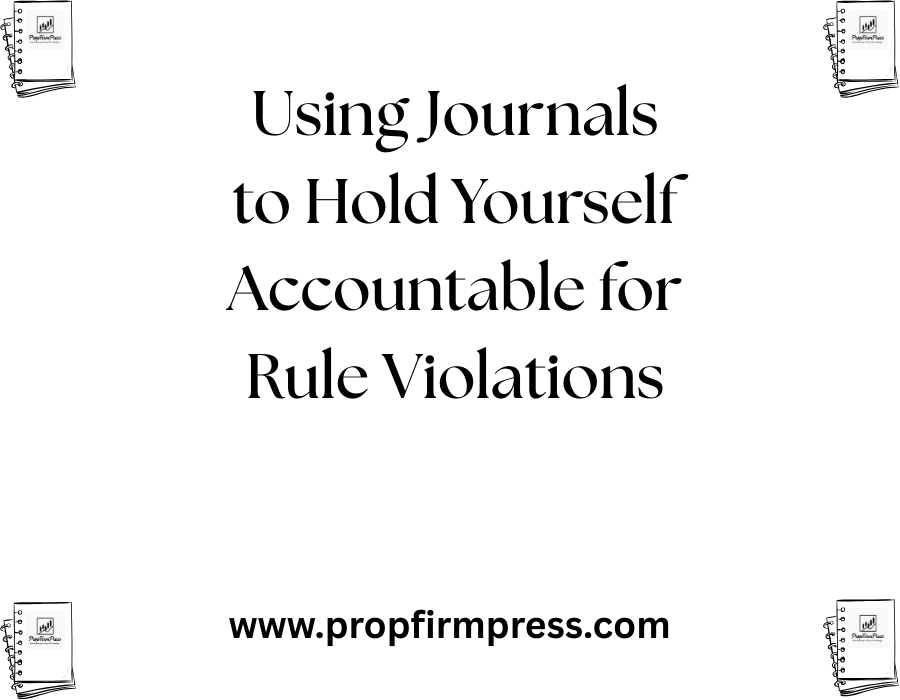Using Journals to Hold Yourself Accountable for Rule Violations
The Role of Accountability in Personal Growth
Accountability is a cornerstone of personal growth and success, especially when it comes to adhering to self-imposed rules or external guidelines. When people fail to follow through on commitments—whether in trading, fitness, work, or other life areas—the consequences can be detrimental. Journaling offers a powerful method to track these instances objectively, enabling individuals to confront their slip-ups and instill discipline over time. This article explores how journaling can act as an effective accountability tool for addressing and reducing rule violations.
Why Journaling Enhances Accountability
Writing regularly in a journal to document when and how rule violations occur allows for increased self-awareness. Unlike mental notes that are often forgotten or rationalized away, a written record provides tangible evidence of behaviors that need improvement. This consistent self-monitoring encourages honesty and transparency with oneself. Moreover, by recording emotions, circumstances, and triggers leading to mistakes, journaling helps uncover patterns, making it easier to develop targeted strategies for avoiding future lapses.
Setting Up Your Accountability Journal
To get started, designate a journal specifically for tracking rule adherence and violations. Whether physical or digital, the key is regular and structured entries. Each journal entry should include the date, the specific rule broken, context around the violation, feelings experienced before and after, and reflections on what led to the decision. Over time, this process creates a detailed map of behaviors, providing clarity and actionable insights.
Incorporating Reflection and Analysis
Simply recording violations is not enough. Deep reflection is essential for long-term change. Use your journal to analyze why the rule was broken. Ask yourself questions such as: What led to this moment? Were there external pressures or internal temptations? How can I adjust my environment or mindset to prevent recurrence? This analytical exercise transforms your journal from a passive log into an active development tool.
Using Your Journal to Identify Trends and Triggers
Over time, patterns begin to reveal themselves. Maybe violations occur more frequently at particular times of day, under stress, or when certain people are around. Highlighting these trends within your journal entries allows you to proactively mitigate triggers. For instance, if fatigue correlates with more mistakes, you can prioritize rest. Should social environments catalyze rule-breaking, considering changes to those scenarios may be necessary. Recognizing these factors enables informed adjustments for improved discipline.
Tracking Progress and Celebrating Small Wins
One of the benefits of journaling for accountability is the ability to document progress. Tracking instances of compliance alongside violations paints a balanced picture, showing improvements even when setbacks occur. Celebrating small victories fosters motivation and reinforces positive behavior. Incorporate notes of encouragement and rewards for milestones achieved. This positive reinforcement helps maintain momentum toward consistent rule-following and personal discipline.
Combining Journaling with Other Accountability Tools
To enhance effectiveness, journaling can be combined with other accountability boosters. Sharing journal insights with a coach, mentor, or accountability partner introduces external perspective and support. Using habit-tracking apps in parallel with journaling provides visual progress updates and reminders. Public commitments or goal-sharing add social pressure that can deter violations. Multi-layered accountability systems empower individuals to stay on track and achieve their objectives more reliably.
Overcoming Challenges in Maintaining a Journaling Practice
While journaling is a powerful tool, it can be challenging to maintain consistency. Common obstacles include forgetting to write, feeling discouraged after repeated violations, or perceiving journal entries as time-consuming. To overcome these, set daily or weekly reminders, keep the journal easily accessible, and adopt a non-judgmental mindset that views slip-ups as learning opportunities rather than failures. Streamlining entries to focus on key facts and reflections reduces burden while preserving value.
Tailoring Your Journal to Specific Rule Sets
Different rule frameworks require tailored journaling approaches. For example, traders may document adherence to risk management protocols, noting deviation types, financial consequences, and emotional states. Fitness enthusiasts can track workout consistency, nutrition slip-ups, and motivational fluctuations. Students might log study schedules, procrastination episodes, and distractions. Designing your journal structure to align with the specific rules you’re accountable for maximizes relevance and usefulness.
The Psychological Benefits of Journaling for Self-Discipline
Beyond practical tracking, journaling delivers psychological benefits essential for cultivating self-discipline. Expressing thoughts in writing reduces cognitive load, clarifies intentions, and strengthens commitment through repeated affirmation. It also nurtures self-compassion, helping individuals treat setbacks with kindness rather than harsh judgment. This positive approach can prevent burnout and foster perseverance, which are crucial for overcoming recurring challenges and embedding long-lasting behavioral change.
Enhancing Accountability Through Visual and Quantitative Journals
Visual elements such as charts, graphs, and color-coding within a journal can enhance accountability by making data easier to interpret at a glance. Quantitative tracking of violations—such as counting infractions per week or scoring adherence levels—provides measurable benchmarks. These methods boost engagement and offer objective insight into progress, enabling timely adjustments. Using simple spreadsheets or bullet journal techniques combined with narrative entries creates a rich, multi-dimensional record of accountability.
Tips for Making Your Accountability Journal a Habit
Creating a journaling habit requires intentional steps. Establish a fixed time and place to write, linking the activity to an existing routine, like morning coffee or bedtime. Start with brief entries to build momentum and reduce resistance. Keep your journal visible and accessible to encourage spontaneous reflections. Periodically review past entries to appreciate growth and refine your journaling approach. Consistency reinforces the self-accountability cycle and accelerates discipline development.
Final Encouragement to Embrace Journals for Accountability
Harnessing the power of journaling offers a reliable pathway to maintaining accountability for rule violations, fostering greater self-awareness, and driving intentional change. By documenting breaches, analyzing root causes, monitoring trends, and celebrating improvements, individuals unlock deeper insights and stronger discipline. As an accessible and flexible tool, journals empower anyone dedicated to personal development to take control of their habits and progress toward fulfilling their goals with integrity and consistency.
